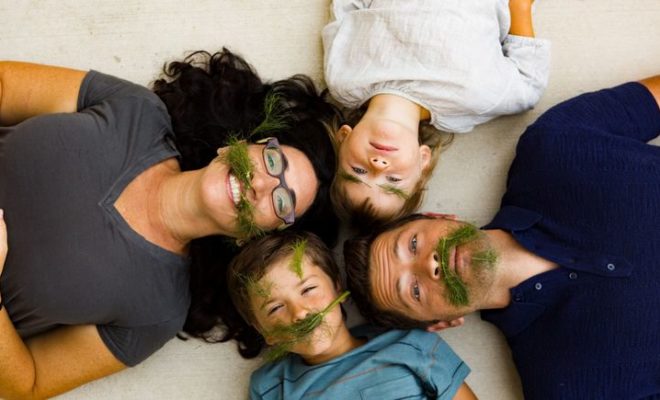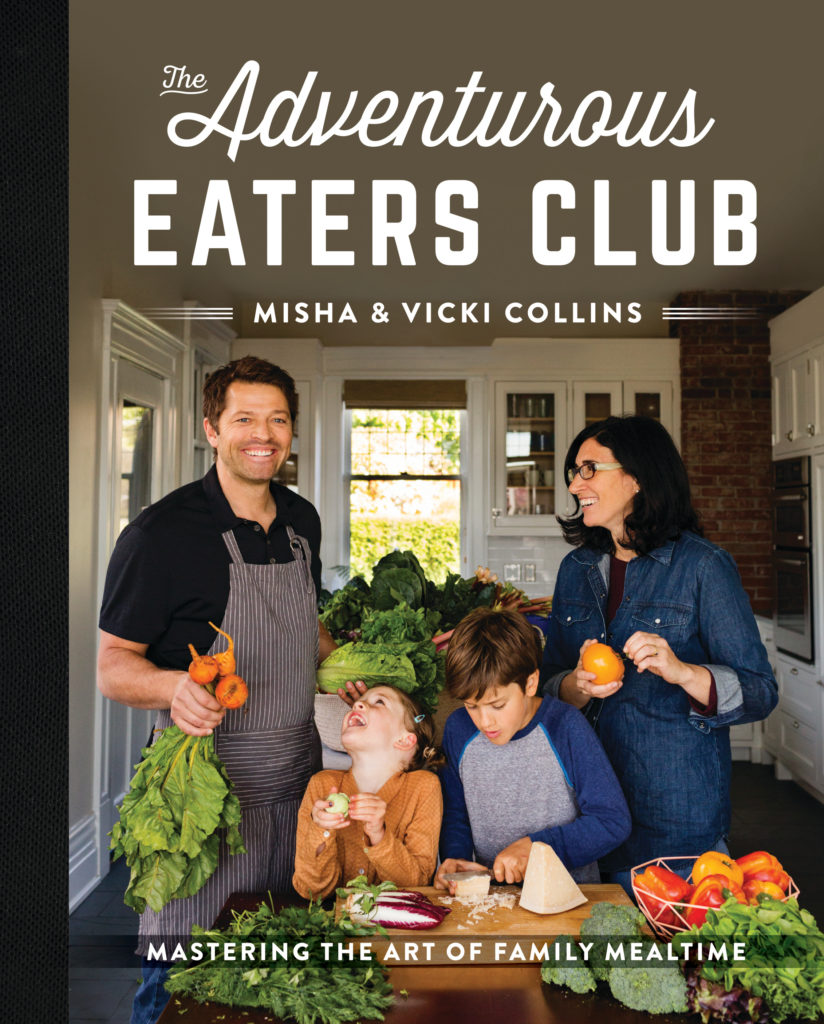 Michéle M. Waite
Michéle M. Waite
Interviews
Misha Collins – The Adventurous Eaters Club
By: Lisa Steinberg
Q) What inspired you to write this book?
A) Well, having children was part of the inspiration. We have kids and I think we thought early on that they were going to eat whatever we ate. We were going to fold them into our lives without really changing our lives. Very quickly we discovered that was not how it was going to go. We had to sort of make adjustments for having children. And early on we noticed that meal times were becoming stressful times that weren’t knitting us together as a family, but actually sort of driving a wedge between us. We felt like we were having arguments with our kids and having to coerce them into eating what we perceived was healthy foods. It was trying to get them to want something other than mac n’ cheese or fruit packs. Then, we noticed we were sort of rolling over and playing dead and feeding them whatever it was that they wanted so at least they’d be eating something. The whole process ripe with both stress and guilt for us as parents. We knew we weren’t feeding our children well, but we also didn’t want to deal with the stress and exasperation of them not eating at all. So, we were just capitulating to what they seemed to be wanting and what seemed to be easy for us. Then, we had this weird moment where we kind of let my son (almost on a whim) lead in preparing a meal. We noticed when we gave him license, he was almost exploring what was in the refrigerator and cooking vegetables. He was kind of creating something new. It was kind of like he was seeing the process of cooking as like being on a playground. He wanted to experiment. Because he had done the preparation, he took pride in it and also curiosity in it. He was suddenly trying foods that he hadn’t previously even looked at. That was sort of the seed for us, seeing that there was a way to crack through the resistance to new foods with a previously picky eater. Ultimately, I guess this cookbook is really the story of that transformation. It’s the story of how we went from being parents who were frustrated at the dinner table and feeling guilty to having food be something that was knitting our family together and where we were bonding over healthy fresh food. For a lot of families this isn’t an Epiphone, but for us it felt like it was a real breakthrough, like we had a real transition in the family. So, we kind of felt compelled to share that.
Q) What did you discover while creating this cookbook?
A) I’m an actor and my wife is a historian and a real nerd. So, once we started to realize we could break through our childrens’ resistance to whole foods she started digging into research and discovered a lot of science that there are all these specific techniques for getting picky eaters to eat new foods. She really also discovered that we live in a culture that is actually training our children to eat beige, bland processed food. We have this insidious thing called “The Kids Menu” in America where kids are presented with French fries, cheeseburgers and previously frozen pizza. Because of they are being presented with it over and over again, they are actually being trained that those are the foods they should eat and like. It’s not like that in the rest of the world. Most places in the world kids are eating what their parents are eating. They are eating whole, fresh foods and not these fried, processed food. So, we started to break down a little bit of that dynamic as well in the cook book.
Q) What was the most challenging part of putting together a book like this?
A) Good question! There are a few things. The cookbook has over a hundred recipes in it. It’s constructed in a way that sort of functions as a field guild for introducing kids to new foods and creating a sense of play, exploration and joy in the kitchen. But we do that through about a hundred different recipes in the book. One difficulty was culling recipes that we liked because we couldn’t make it a six-volume tome. So, we had to select our favorite recipes and let go of some that we liked. We did a lot of experimenting with the kids. Part of our process in writing this book was allowing the kids on some of the recipes. There are a handful of recipes in this book called “The Culinary Frontiers” recipes where we really let the kids take the reins and let them design recipes from scratch. For example, one of them is Pasta With Jam Sauce. It’s a truly, truly disgusting concoction. One of the most difficult things for me, when my kids make something that is deeply vile, I always take a bite and I always smile and say, “Mm!” [chuckles] Swallowing the jam sauce, I have to say, was one of the more challenging moments. But in the process, we have a lot of fun and we laugh a lot so it’s worth it.
Q) Did you growing up in Massachusetts influence the book in any way?
A) Definitely! I was raised by a single mom and we were poor and living off food stamps a lot of the time and sometimes homeless. Only one thing was really consistent in my childhood and that was my mom made fresh homecooked meals every day. I think it conveyed to me, as a child, in an uncertain environment a sense of consistency and comfort and made me feel like everything was okay. What I have been realizing has been happening (when I grew up and had kids myself), I automatically turned to cooking as a way to show my kids that I loved them and cared for them. I think when I’m feeling like a particularly absent father (because I travel a lot for work and I’m gone, I’ll come home and maybe only have a few hours with the kids before I have to go away again)…A way that I kind of show them that I care about them and that I love them is to make them a meal. So, my upbringing definitely trained me to use food as a way to convey love.
Q) What advice do you have for those who feel they “can’t cook?”
A) I think there is actual real joy in the discovery of learning to cook. It’s a totally learnable skill. My wife grew up in a family where they really didn’t cook at all. Because she wasn’t really exposed to cooking as a child, she grew up into an adult who didn’t know the first thing about cooking. In the process of having kids and even working on this cookbook (but even previous to that) and watching me cook made her curious about cooking. Now, she is an incredible cook and really finds joy in a process that she used to find terrifying. She said something sweet to me…Early on when we were in the process of writing this book she said, “I want to thank you for bringing food into our family and for teaching me that it’s not a scary thing.” [laughs] I thought that spoke volumes about her upbringing, but also about the joy that you can get from starting to learn to cook. This book is really geared towards the beginner cook, but it’s also geared towards introducing children to the joys of cooking and to new foods. So, if someone feels like they are not a cook, this is a great place to start.
100% of author profits from the sale of the book are going to charity, including The Edible Schoolyard Project. The Edible Schoolyard Project is dedicated to transforming the health of children and the planet by designing hands-on experiences in the garden, kitchen, and cafeteria that connect children to food, nature, and to each other.






You must be logged in to post a comment Login